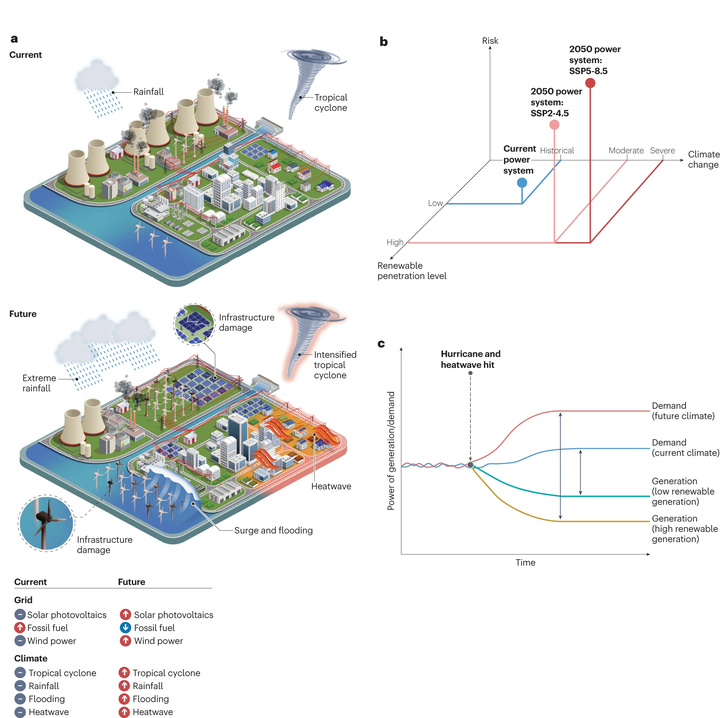
Abstract
Climate change is expected to intensify the effects of extreme weather events on power systems and increase the frequency of severe power outages. The large-scale integration of environment-dependent renewables during energy decarbonization could induce increased uncertainty in the supply–demand balance and climate vulnerability of power grids. This Perspective discusses the superimposed risks of climate change, extreme weather events and renewable energy integration, which collectively affect power system resilience. Insights drawn from large-scale spatiotemporal data on historical US power outages induced by tropical cyclones illustrate the vital role of grid inertia and system flexibility in maintaining the balance between supply and demand, thereby preventing catastrophic cascading failures. Alarmingly, the future projections under diverse emission pathways signal that climate hazards — especially tropical cyclones and heatwaves — are intensifying and can cause even greater impacts on the power grids. High-penetration renewable power systems under climate change may face escalating challenges, including more severe infrastructure damage, lower grid inertia and flexibility, and longer post-event recovery. Towards a net-zero future, this Perspective then explores approaches for harnessing the inherent potential of distributed renewables for climate resilience through forming microgrids, aligned with holistic technical solutions such as grid-forming inverters, distributed energy storage, cross-sector interoperability, distributed optimization and climate–energy integrated modelling.